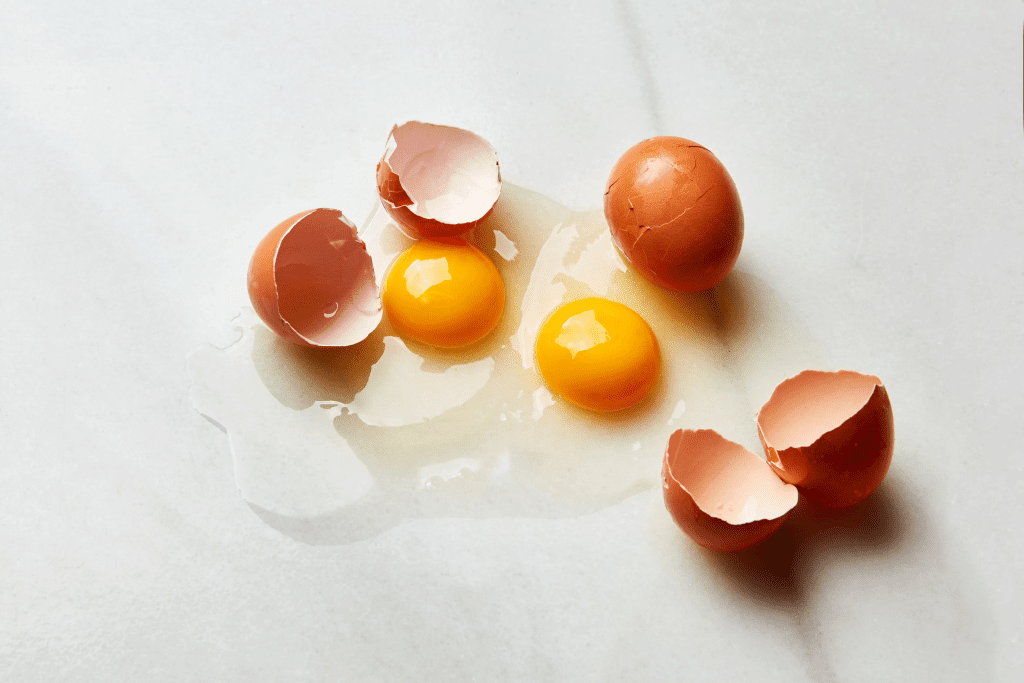Most middle schoolers probably have other things on their minds besides building houses.
But Luke Thill, a 13-year-old from Dubuque, Iowa, is unlike any other middle schooler you’ve seen before.
This talented and proactive boy has crafted his very own little house — in his parent’s backyard.
The project cost him roughly $1,500 USD — and now Luke is living his dream in his little cottage.
Come on in and have a look at what it looks like inside.
I think it’s safe to say that Luke is not like many of his 13-year-old peers. In a time of iPads, smartphones, gadgets, and X-Boxes, this young man decided to keep himself busy in a different and more ‘old-fashioned’ way. As he explains on his YouTube channel, his desire to build a small house grew out of feeling bored last summer.
After some thorough research, Luke had a pretty good idea of how he was going to put his plan into action.

The Process
It took him about a year to get the money and materials he needed to build the house. Luke mowed lawns, started a fund-raiser online, and ran errands for anyone who needed help in the neighborhood to make money.
An electrician Luke was friends with helped him install the electricity in exchange for Luke cleaning his garage out, for instance.
Luke used about 75 percent recycled material, many of which were things left over from his grandma’s house. The front door of the house was a gift from an uncle’s friend.
The 89-square-foot house is 10 feet long and 5 1/2 feet wide, with electricity but no plumbing, so no water or bathroom… yet.
“I liked the minimalism,” he told The Des Moines Register. “And I wanted to have a house without a huge mortgage.”
Luke has made several video clips and posted them online, where he talks about his project as many have grown curious about the little house.

As you can imagine, Luke also received some help from his parents, both financially and with the building itself.
But dad Greg made sure that it would be Luke himself who would pay for most of his project and also build most of it himself.
“It was a chance for a kid to do something more than play video games or sports,” Greg told The Des Moines Register. “It teaches life lessons.”
Teenager’s Dream
The house is in many ways a teenager’s dream, an oasis where you can chill and hang out in. It has a microwave, a TV, and a loft with a bed.
There’s even a barbecue and flowers at the back.
Luke usually does his homework after school at his new house and some nights during the week he gets to sleep there.
Luke already has aspirations to build another house — one that’s a little bigger for when he starts college. He also hopes to inspire others to follow their dreams:
“I want to show kids it’s possible to build at this age,” he says in one of his videos.
You can really see how proud he is about his project below.
Luke’s story is a great example of what a child can achieve with a clear goal, a strong worth ethic, and support from home.
Didn’t realize like this
Eggs are a kitchen staple—versatile, nutritious, and packed with protein. But what happens when you notice your egg carton has passed its expiration date? Can you still use them, or is it time to toss them out?
This is a common household dilemma, often leading to debates over food safety, expiration dates, and storage methods. Some people insist that expired eggs should never be eaten, while others claim they are safe weeks beyond the date.
So, what’s the truth? Let’s crack open the facts and settle this debate once and for all.
Understanding Egg Expiration Dates

One of the biggest sources of confusion is the expiration date printed on egg cartons. Many consumers assume that once this date has passed, the eggs are automatically bad or unsafe to eat. But that’s not entirely accurate.
Egg cartons typically have one of the following labels:
✔️ Sell-By Date – A guideline for retailers, indicating how long eggs should be displayed for sale. Eggs are still safe to eat beyond this date if stored properly.
✔️ Expiration Date (EXP) – This is the suggested last date for using the eggs, but not a strict safety deadline. Many eggs remain fresh for weeks past this date.
✔️ Pack Date (Julian Date) – A three-digit code that represents the day of the year the eggs were packed. For example, “001” means January 1st, while “365” means December 31st. Eggs can often remain good for four to five weeks after this date.
So, does an expired date automatically mean bad eggs? Not necessarily. The key lies in how eggs are stored and tested for freshness.
Video : How Long Can Eggs Really Last?
How to Determine If Eggs Are Still Safe to Eat
Instead of relying solely on expiration dates, use simple and reliable tests to determine egg freshness.
1. The Float Test (Most Popular Method)
The float test is an easy and effective way to check an egg’s freshness. Here’s how:
1️⃣ Fill a bowl with cold water.
2️⃣ Gently place the egg into the water.
3️⃣ Observe the results:
- Fresh eggs sink and lay flat on the bottom.
- Slightly older eggs stand upright but remain at the bottom.
- Spoiled eggs float to the top and should be discarded.
Why does this work? Over time, air enters the egg through its porous shell, causing it to become more buoyant. Floating means there’s too much air inside, signaling that the egg is no longer fresh.
2. The Sniff Test
Crack the egg open and give it a quick sniff. If you notice a strong sulfur-like or rotten smell, the egg is bad and should not be eaten. Fresh eggs have a mild or neutral scent.
3. The Visual Test
Look at the egg’s:
✔️ Egg white: A fresh egg has a thick, slightly cloudy egg white. A watery or runny white suggests it’s older but still safe.
✔️ Yolk: A bright yellow or orange yolk is a good sign, while a flattened yolk can indicate age.
✔️ Unusual discoloration: If you see dark spots, mold, or pinkish hues, throw the egg away immediately.

The Science Behind Egg Freshness
What makes eggs go bad over time? The answer lies in their natural structure and storage conditions.
- Eggshells are porous, meaning air and moisture can pass through over time. This process accelerates if eggs are not stored properly.
- Carbon dioxide and moisture loss cause eggs to become less dense, affecting their texture and taste.
- Refrigeration slows bacterial growth, keeping eggs fresh for much longer.
If eggs are kept in the refrigerator, they can stay safe to eat for up to 4-5 weeks after the pack date. However, eggs stored at room temperature spoil much faster.
Common Misconceptions About Expired Eggs
❌ “Eggs become unsafe the moment they expire.”
✅ Not true! If stored correctly, eggs remain good for weeks past their expiration date.
❌ “If an egg has a runny white, it’s bad.”
✅ Not necessarily. A runny egg white means the egg is older, but it can still be safe to eat if there are no bad smells or discoloration.
❌ “You can’t eat raw eggs if they’re past the expiration date.”
✅ While fresh eggs are best for raw consumption, properly stored eggs past their expiration date can still be used for baking and cooking as long as they pass the freshness tests.
Video : Staying Fresh: Understanding Egg Expiration
Health Risks of Eating Spoiled Eggs
While most expired eggs are still safe, consuming truly rotten eggs can pose health risks. Spoiled eggs may contain bacteria like Salmonella, which can cause food poisoning.
⚠️ Symptoms of food poisoning from bad eggs include:
- Stomach cramps
- Nausea and vomiting
- Diarrhea
- Fever and chills
If you suspect an egg is spoiled, it’s better to be safe than sorry—throw it out.
Practical Tips for Storing Eggs Safely
To extend the shelf life of eggs and keep them fresh longer, follow these storage tips:
✔️ Store eggs in the refrigerator – Keep them at or below 40°F (4°C) to slow bacteria growth.
✔️ Keep them in their original carton – This prevents moisture loss and protects eggs from absorbing strong odors.
✔️ Avoid storing eggs on the fridge door – The temperature fluctuates every time the door is opened. Instead, keep them on a middle shelf where the temperature is more stable.
✔️ Wash eggs only before using them – Washing eggs can remove their protective coating, making them more vulnerable to contamination.
✔️ Use older eggs for baking and cooking – If your eggs are past their expiration date but still pass the float and sniff tests, use them for scrambled eggs, baking, or boiling instead of eating them raw.

Resolving Disagreements Over Expired Eggs
If you and your partner or family members disagree about eating expired eggs, here’s how to handle it:
✔️ Communicate openly – Discuss concerns and agree on a testing method (like the float test) before making a decision.
✔️ Compromise – If one person is uncomfortable with using older eggs, use them for non-direct consumption (baking, frying at high heat, etc.).
✔️ Rely on expert recommendations – Food safety experts emphasize sensory tests over printed dates.
Final Thoughts: Are Expired Eggs Safe to Eat?
Egg expiration dates can be misleading, but understanding how to check for freshness can prevent unnecessary waste. While eggs do not instantly spoil after the expiration date, proper storage and freshness tests are essential for safe consumption.
Next time you find yourself debating whether to eat or toss expired eggs, remember: a simple float or sniff test is all you need to make the right decision!



Leave a Reply